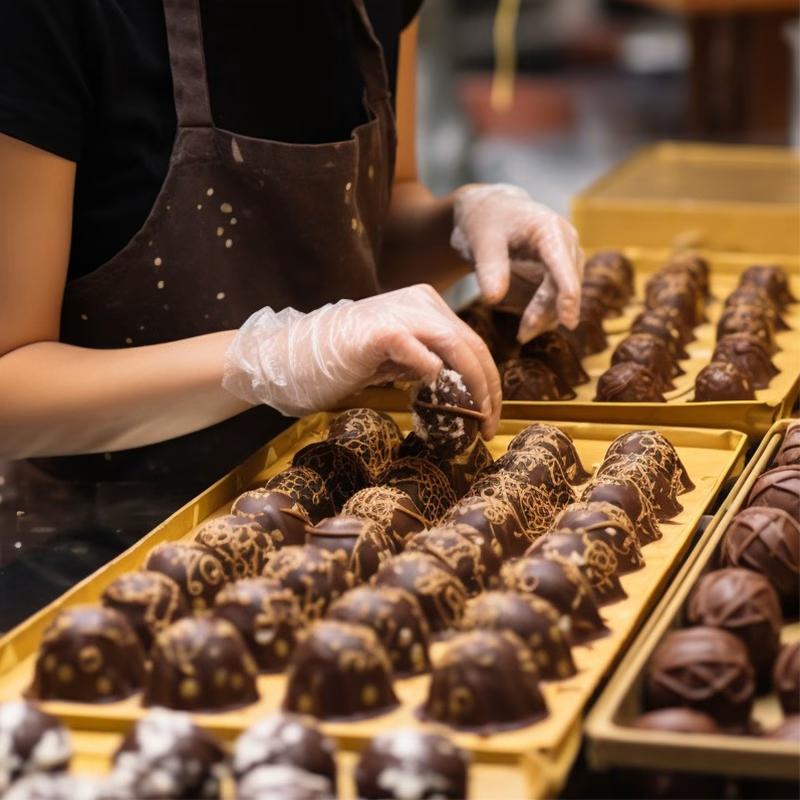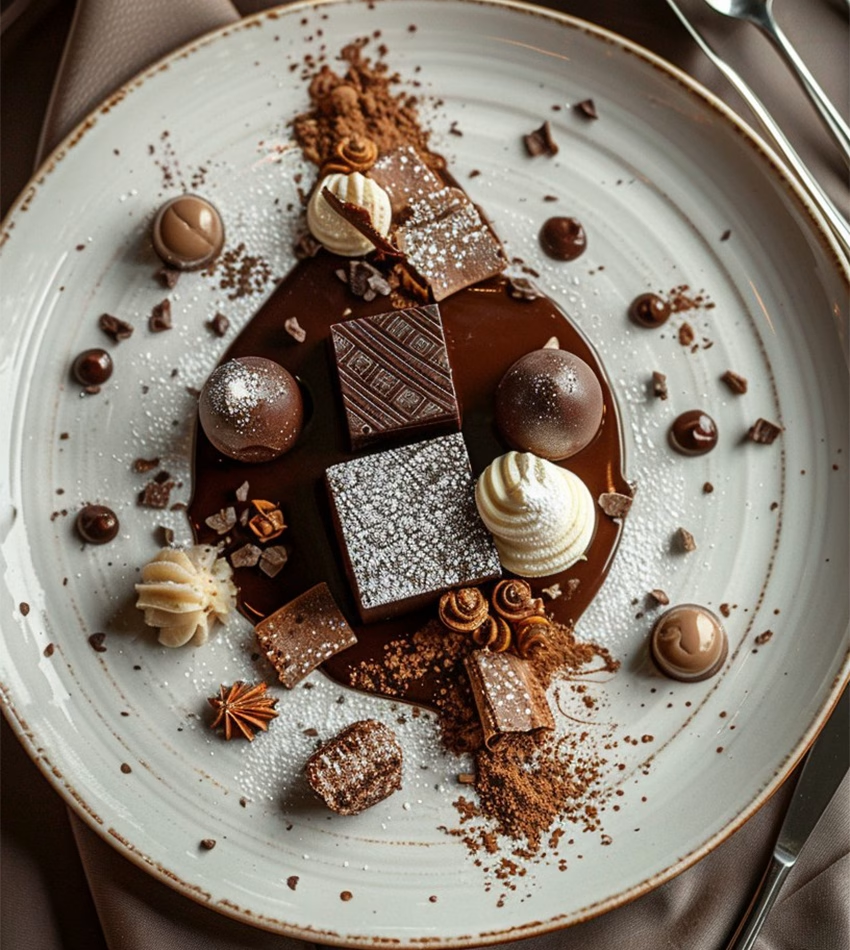How Small Artisan Chocolate Makers Fit into the Process
While large multinational companies dominate the chocolate industry, small artisan chocolate makers are becoming an increasingly important part of the market. These businesses focus on quality, ethical sourcing, and unique flavours, often following a bean-to-bar approach, where they oversee every step of chocolate production. Unlike mass-market chocolate, which prioritizes efficiency and cost-cutting, artisan makers emphasize craftsmanship, sustainability, and fair trade relationships with cacao farmers.
Here’s how artisan chocolate makers fit into the broader cocoa production and distribution system:
1. Direct Trade with Farmers
One of the biggest differences between large chocolate corporations and small artisan makers is how they source their cocoa beans. While big companies buy from global exporters and commodity traders, small chocolatiers often establish direct trade relationships with farmers or cooperatives in cacao-growing regions such as:
- West Africa (Ivory Coast, Ghana)
- South America (Ecuador, Peru, Venezuela)
- Southeast Asia (Indonesia, Philippines)

Benefits of Direct Trade:
- Fairer Prices for Farmers: Artisan chocolate makers often pay above market rates for high-quality beans, ensuring better wages for farmers.
- Higher Quality Beans: Direct relationships allow chocolatiers to select fine-flavour cacao varieties instead of bulk commodity-grade beans.
- Encouraging Sustainable Farming: Many small chocolatiers support agroforestry and organic farming to improve soil health and biodiversity.
By working directly with cacao farmers, artisan chocolate makers help create a more transparent and ethical supply chain while preserving rare and heirloom cacao varieties.
2. Small-Scale Bean Processing
Once artisan chocolate makers acquire their cacao beans, they process them in small batches rather than using industrial-scale machinery. This process includes:
Sorting and Cleaning
Before roasting, beans are hand-sorted to remove defective or broken pieces, ensuring only the highest-quality beans are used.
Custom Roasting
Artisan chocolatiers experiment with roasting techniques to bring out the best flavours in their beans. Unlike large manufacturers that roast beans for uniformity, small makers adjust roasting times and temperatures to highlight unique fruity, nutty, or floral notes.
Grinding and Conching
- Many artisan chocolate makers use stone grinders (melangeur) instead of large industrial refineries.
- This slow grinding process (sometimes lasting 24–72 hours) helps develop a smooth texture and balanced flavours.
Unlike mass-market chocolate, which may use chemical additives to speed up production, artisan makers rely on time and technique to create high-quality chocolate.
3. Crafting Unique Chocolate Products

Small-batch chocolate makers often focus on:
- Single-origin chocolate, highlighting the natural flavours of cacao from specific regions.
- Minimal ingredient lists, often using just cacao, sugar, and cocoa butter without artificial flavours or preservatives.
- Innovative flavours, incorporating spices, nuts, or exotic ingredients like sea salt, chilli, or rare fruits.
Many artisan chocolatiers also produce dark chocolate with higher cocoa content, appealing to consumers looking for a less sugary, more intense chocolate experience.
4. Selling through Specialty Markets
Unlike big brands that distribute through supermarkets and global retailers, artisan chocolate makers sell through:
- Local farmers’ markets and boutique stores.
- Online shops and subscription services.
- High-end restaurants and gourmet retailers.

Because of their emphasis on quality and sustainability, artisan chocolate often appeals to conscious consumers willing to pay more for ethically sourced, handcrafted products.
In Conclusion
Artisan chocolate makers play a vital role in preserving cacao diversity, promoting ethical sourcing, and offering unique, high-quality products. While they may not produce on the same scale as multinational corporations, their commitment to sustainability, craftsmanship, and direct farmer relationships ensures that the chocolate industry continues to evolve in a more ethical and innovative direction.
